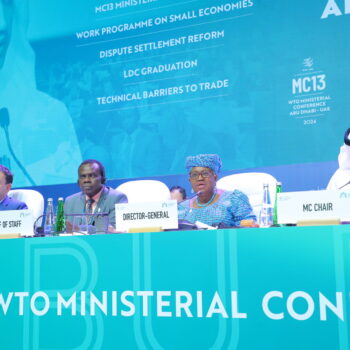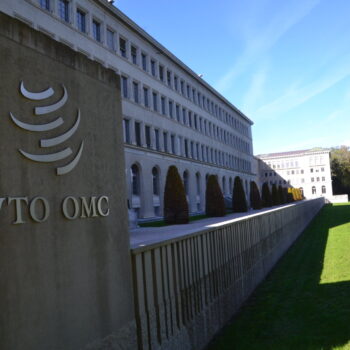Between much needed and all too short summer breaks, politicians and policy-makers across Europe are attempting to define a better future for the European Union, while finding practical ways to carry on work with the UK on the way out. Here’s a short update of what has happened over the past two months.
UK referendum vote fallout
- The Commission has nominated former EU Internal Market and Services Commissioner and French cabinet minister Michel Barnier as the European Commission chief negotiator for Brexit. The Frenchman is known as a skilful negotiator with a deep understanding of financial services. As Commissioner, he oversaw the revision of Europe’s rule book for banks, markets and insurance, which made him rather unpopular in The City in London and the UK government.
- Despite European Parliament President Martin Schulz’ assurances that British MEPs would remain full-fledged members of the Parliament until the UK formalizes its exit from the union, some MEPs have called for British MEPs to give up their leadership roles as rapporteurs, committee chairs, etc. Appointment of British MEPs as rapporteurs on new files are unlikely, but influential and recognised British MEPs will remain so. Notably, the ENVI committee refused the resignation of Ian Duncan as rapporteur of the ETS file.
- The UK relinquished its presidency of the Council in 2017 to “prioritise the negotiations to leave the EU”. It is replaced by Estonia and all future presidencies move forward by six months. Presidencies in the upcoming three years are held by small or new EU member states (MT-EE in 2017; BU-AT in 2018; RO-FI in 2019), which may affect negotiations on the legislative files.
‘EU Mood’ – Brexit isn’t the only problem in town
- The standoff between the Polish right-wing “Law and Justice” (PiS) government and the country’s Constitutional Court continues. The government is attempting to regulate the functioning of the country’s top court, curtail its powers, and appoint loyalist judges. The Court has ruled these attempts as unconstitutional, to which the government responded by triggering an investigation against its president for overstepping authority. The Commission gave formal recommendations to Poland to resolve the situation, with which the government has to comply until 27 October or it may face sanctions such as losing its Council voting rights.
- EU-Turkey relations deteriorate as key EU figures criticized the Turkish government’s crackdown following the failed July 15 coup. Besides serious concerns over recent decisions on the education system, judiciary and the media, a potential reintroduction of the death penalty was mentioned as a ‘rubicon’ that should not be crossed if Turkey still wanted to join the EU.
- The transatlantic cooperation is getting tense as the US Treasury criticized the EU competition authority’s investigations against American companies including Google, Starbucks, and Amazon. The latest decision of the Commission that Apple would have to settle EUR 13bn of unpaid taxes to Ireland won’t appease the situation.
- The future of TTIP negotiations becomes blurry as German Vice Chancellor Sigmar Gabriel called the talks as “de facto failed” and the French President wanted to call them off, while the Commission and the US reported steady progress.
EU Reforms
- EU leaders remain keen on framing the EU reform debate. Merkel, Renzi and Hollande met yet another time to discuss their vision – a further indication of a new informal EU trio leadership. Meanwhile, following Hollande’s Europe tour and Tusk’s plans to meet all EU member states prior to the Bratislava summit, Merkel – concerned about her place in history books after Europe is divided over her refugee stance – embarked on a journey to 15 capitals to search for areas of common ground.
- Heads of state and government of the EU27 will meet in Bratislava on September 16 to continue a political reflection on further reforms and the development of the EU with 27 member states. German Chancellor Angela Merkel announced a focus on improving economic power, creating more jobs for young people and boosting internal and border security. Cooperation on defence and intelligence appears also increasingly possible, eventually leading to the establishment of a European army.
- In Bratislava, EU leaders will also present their views on Europe after Brexit, ranging from pro-integration (broadly DE, IT, FR, Baltic States) to advocating a return of EU powers to member states (broadly Visegrad 4, SE, NL, DK).
- Ideas and proposals on EU reforms are also presented by thinks tanks, NGOs and European political groups. The latter’s input (the three major groups – socialists, conservative and liberals – set a rather federalist tone) cannot be ignored by EU leaders since the EP has to approve the negotiated Brexit agreement.
The Energy Union must go on
- On July 20, the Commission released its proposals for the Effort Sharing Regulation (ESR), the main tool governing the EU’s GHG emission efforts alongside the Emissions Trading Scheme. The ESR sets GHG emission reduction targets per member state, for sectors not covered by the ETS such as agriculture, transport and buildings. These sectors, accounting for almost 60% of the EU’s GHG emissions, must cut their emissions by 30% compared to 2005 levels by 2030. The proposal has been strongly criticized by NGOs for including too many potential loopholes.
- The next Energy Union legislative milestone is the publication of the proposals for the revised EED and EPBD (expected early or mid Oct). Other Commission releases include the 2017 Commission work programme (Oct 25); Research, Innovation and Competitiveness Strategy (EURICS) (Nov 9); proposals on renewables, energy & climate governance, market design (Nov 30); and the State of the Energy Union (Dec 7).


